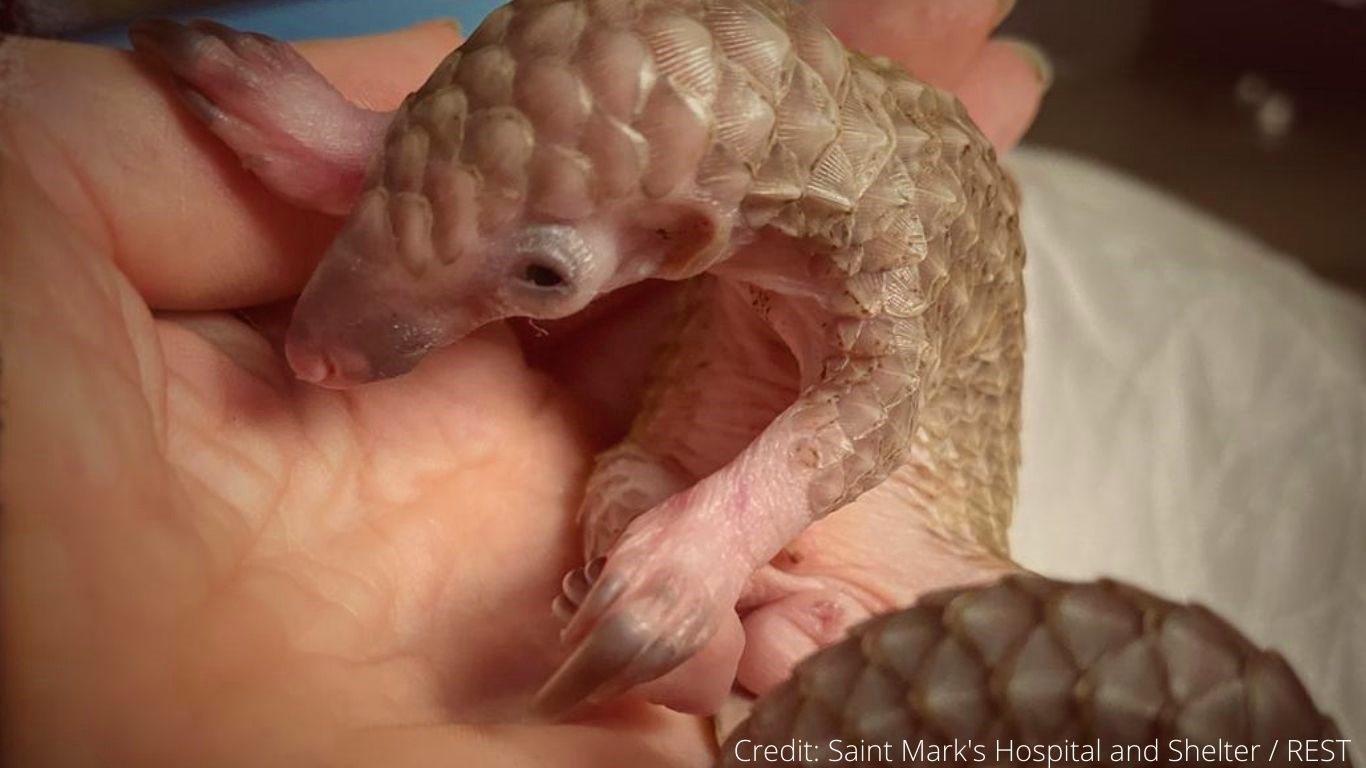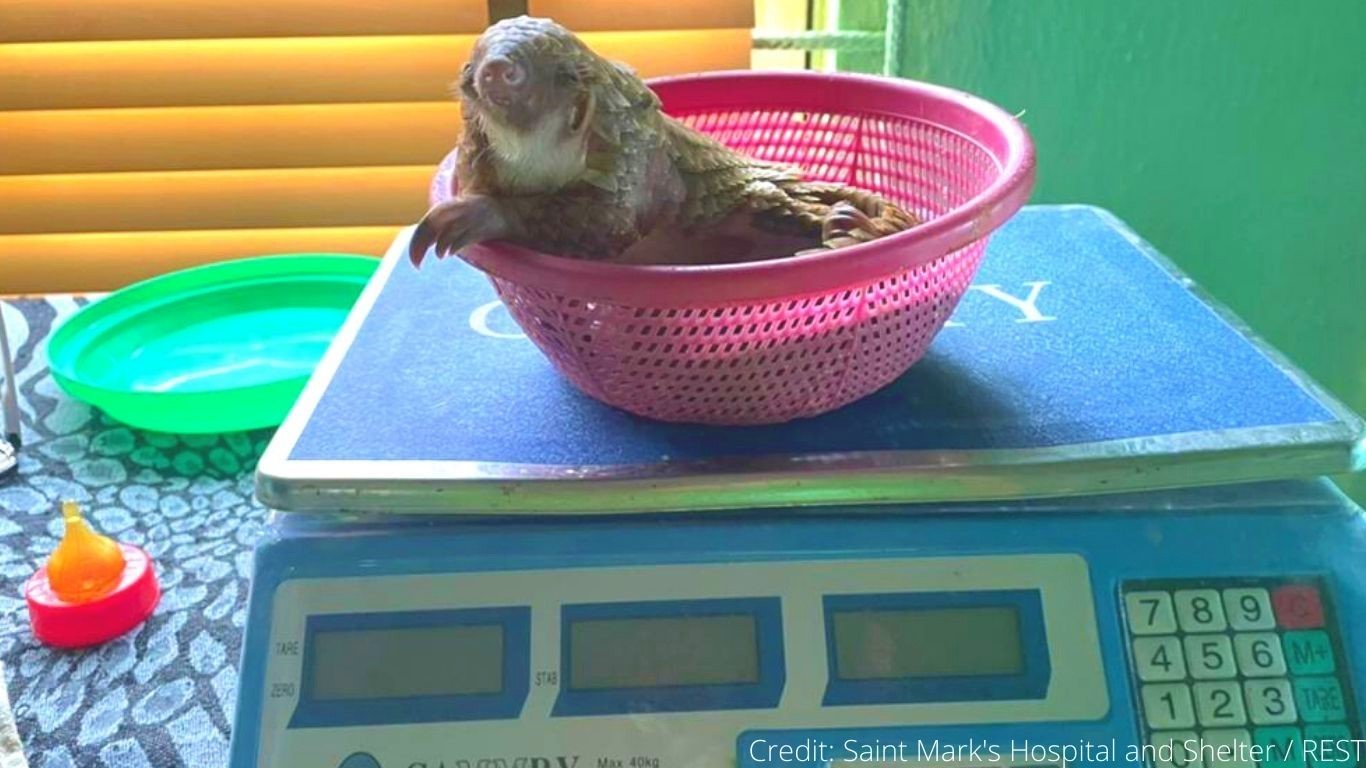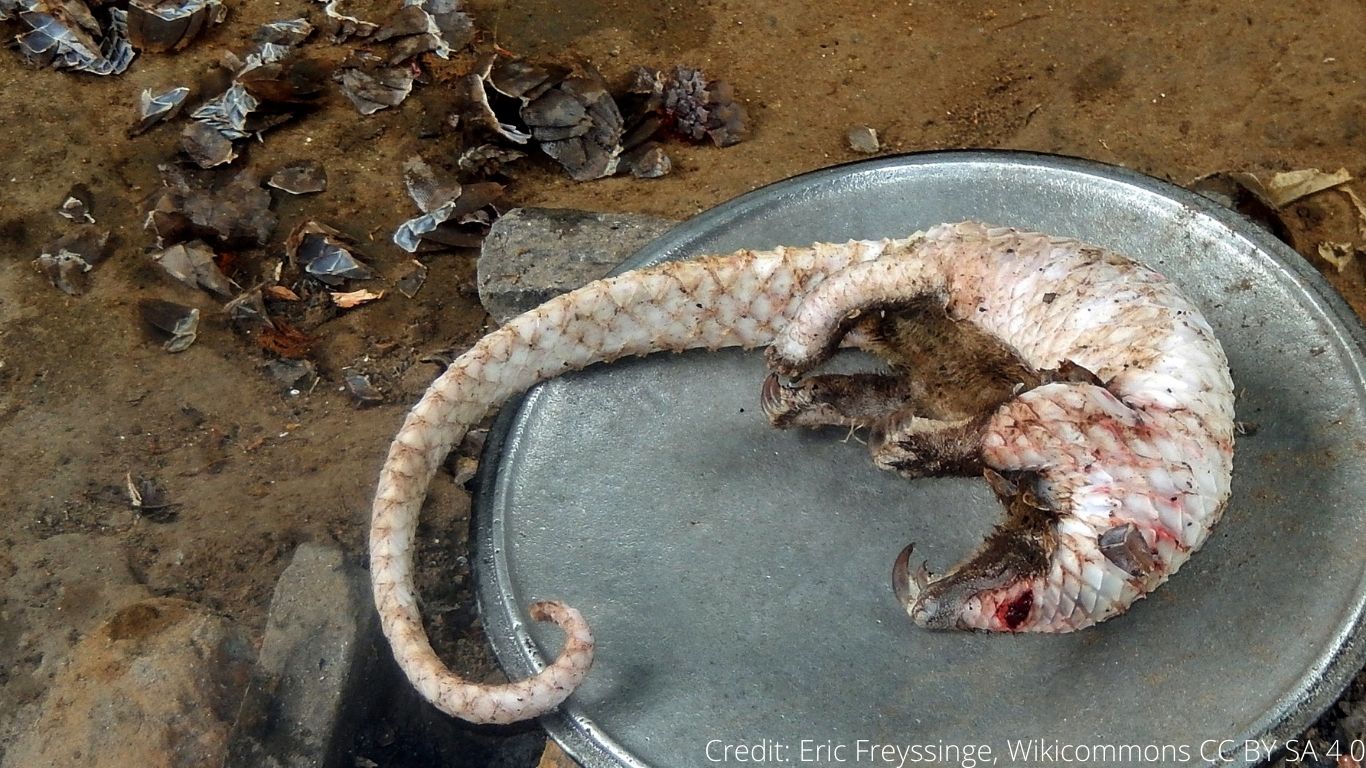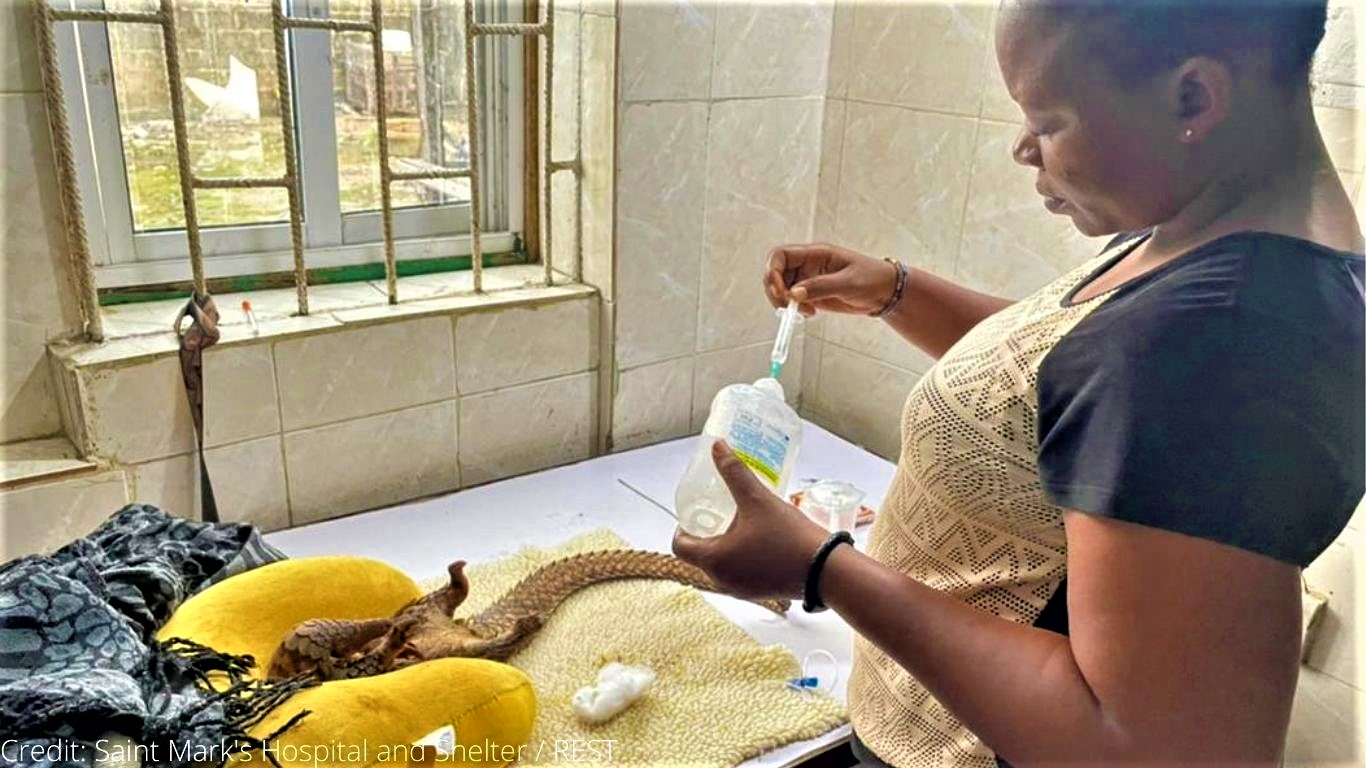Last week, we told you about five baby pangolins rescued from the illegal bushmeat market in Nigeria who are in desperate need of our help. As the Animal Survival International (ASI) team was preparing to rush life-saving funds to the Saint Mark’s Animal Hospital and Shelter, two more pangolins – a mother and newborn baby – were rescued. The mother’s condition is critical and if she doesn’t survive, we cannot guarantee the survival of her baby. We must urgently raise an additional $2,500 (£1,800) if they are to have a chance of survival.
We’ve told you before about the crisis facing Africa’s pangolins. This shy, scaly creature is the most poached and trafficked mammal in the world. Asia’s insatiable demand for pangolin scales and meat is fast-tracking the species to extinction, which means every single pangolin life is important.
Right now, seven pangolins, who were rescued from the illegal bushmeat market in Nigeria, are in desperate need of our help.
Five mothers have already been killed, but with medical attention, specialized milk formula and around-the-clock care, we can give the rest a chance at survival.
Please will you help us help them?
If we don’t act immediately to help these unique and rare animals, pangolins could become extinct in our lifetime.

ASI received news that our partner, the Rare and Endangered Species Trust (REST), had been called upon to provide urgent critical care for the five baby pangolins. Despite travel difficulties amidst COVID-19 restrictions, pangolin rescue expert, Maria Diekmann, immediately journeyed from her home in Namibia to Saint Mark’s Animal Hospital and Shelter in Lagos, Nigeria, to care for the fragile babies.
Nigeria has become Africa’s epicenter for illegal wildlife and bushmeat trade. A criminal cocktail of lax governance, corruption and powerful trafficking syndicates has caused rapid growth in poaching and illegal wildlife exports over recent years. Yet, Saint Mark’s is the ONLY animal rescue center in Nigeria’s capital city of Lagos, where nearly 15 million people live. Founder, Mark Ofua, has made it his mission to save as many wild animals as he can from the many illegal markets.
Our pangolin emergency fund has run dry.
We must urgently raise an additional $2,500 (£1,800) to provide the emergency care these rescued pangolins need.
With each passing year, the number of rescued animals being brought to Saint Mark’s is growing. Right now, the small, basic center is struggling with the influx of rescued baby pangolins saved from the bushmeat market where their mothers were killed for food. Mark says on average the center receives three to four rescued adults every month and this number goes up during breeding season when more babies are rescued. Every pangolin we can save from this horror is a victory for their species.
Earlier this year, we asked you to help us set up an emergency fund for rescued pangolins in need of critical care. Your generous response allowed us to rush Saint Mark’s funding to help the five baby tree pangolins in Maria’s care. But these funds have run out, and the rescued pangolins are still months away from recovery.

The road ahead is long, and these fragile creatures need 24-hour, hands-on care to ensure they are stable and can grow strong enough to be released back into a safe wild area. They must be fed a specialized milk formula every four to six hours, be taken on regular walks to help them build their strength and encourage their instinctive ability to forage for food. It’s also critical that their environment is stable, calm and the temperature regulated in these early weeks to ensure they can thrive without unnecessary stress.
It will be at least three months before the strongest of the seven is ready to be released into the wild. During this time, we must help provide enough milk and medical care for them to survive.
Before the baby pangolins were rescued and brought to Saint Mark’s, their only contact with humans was being snatched from the wild and then separated from their mothers who were killed and eaten. The noise of the markets and the barbaric way they are handled by poachers is mentally and physically traumatizing for the tiny pangolins. This means that not only do they need physical care, but it’s imperative they receive emotional support too.
We cannot ignore how precious each baby pangolin life is to the entire species. We must do whatever we can to help every single one survive!
Please help us take care of these precious creatures to make sure every baby pangolin survives long enough to be released back into the wild with a tracker to monitor its wellbeing. We have promised to provide more help, but we need your support.




